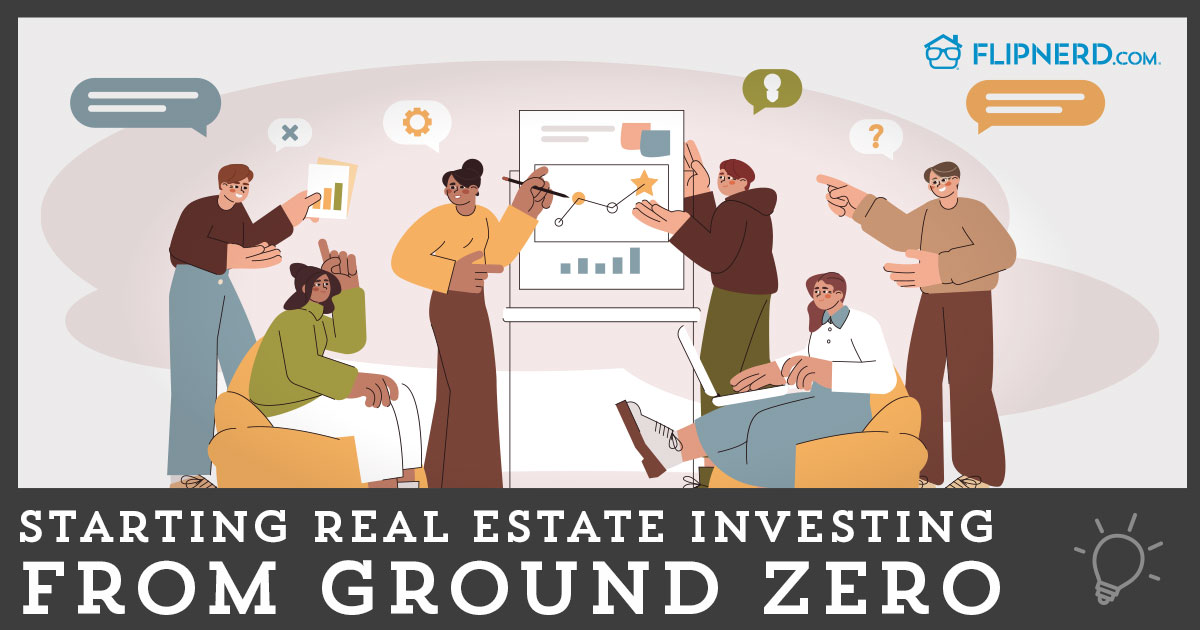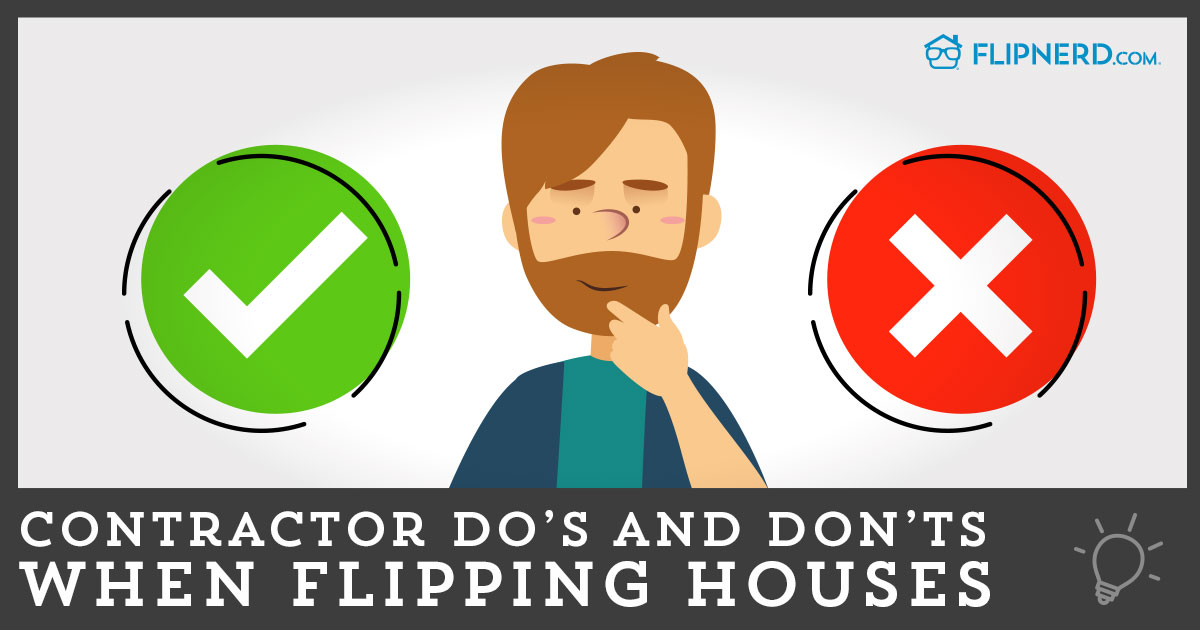In this article, we discuss ‘Wholesaling’, which is one of the 3 primary exit strategies that investors use in real estate investing (Wholesaling, Rehabbing/Retailing, Rental Properties). Wholesaling is very common for newer investors (and even many veterans), due to it low relative risk, ease of getting started, little/no need for capital to do deals, and when successful, can result in quick pay days. We also share interviews and videos with several successful wholesalers in America, to provide some variety in thought leadership.
1. What is Wholesaling?
In its simplest form, Wholesaling is finding a deal at a deep enough discount to where you can sell it to another investor that is willing to pay you for it. Generally, that investor will rehab and resell it, or perhaps keep it as a rental property. No different than a major retail store buying products from a wholesale distributor. True investors that would buy from you have no concerns of you making money by sourcing deals for them, as long as the economics of the deal work for them.
Check Out this Interview with Matt Andrews on How to Build a Wholesaling Business
The key to wholesaling is ‘adding value’. It’s critical that you add value to a seller, buy offering a price that will work for them, and making the process of selling the home as easy as possible for them. The seller needs to be willing and able to sell to you at your price, because you made their problem go away easily. On the other hand, you must add value to your end buyer by bringing them a deal that they wouldn’t have otherwise had access to, and priced at a point where they can still make a respectable (or at least, acceptable) level of profit. As the person in the middle making deals happen, your sellers will always wish your offers were higher, and your end buyer will always wish you were selling at a lower price. Your profit and livelihood are in the middle, so managing both sides effectively will determine your success.
2. Assigning vs. Wholesaling
The terms “Assigning” and “Wholesaling” are often used interchangeably, and some having varying definitions, but I’ll share my definition, the most common, here. In its purest form, “Assigning” generally means that you never take legal possession of a home before you sell it. Because of that, when you’re “assigning a property”, you’re not actually selling the property…you’re selling the contract or right to purchase the property based on your agreed to contract with the seller. Generally speaking you’re selling that ‘right’ at a price above your contract price, which is your profit (or “Assignment fee”) on the deal.
3. Wholesale Real Estate Example
For example, let’s assume you find a house with an ARV (After Repaired Value) of $100,000.
If this house is in need of $20,000 in repairs and agree to purchase from a seller (via contract) for 40,000, You’d be purchasing that house at 60% of ARV ($40,000 purchase price + $20,000 in repairs = $60,000 investment). $60,000/$100,000 = 60%.
If you in turn found a buyer to agree to purchase your contract (you assign the contract to them) for $50,000 (70% of ARV), at the time of closing…the seller would get their $40,000 (less any mortgage payoffs, taxes due, etc.), you’d get your $10,000 “Assignment Fee”, and the end buyer would get the house (for $50,000).
You may notice that we haven’t yet discussed ‘closing costs’, or the costs associated with closing this transaction. This part is one of the primary differentiators between an Assignment and a true ‘Wholesale’ deal. In the example above, the end buyer effectively closed the deal in your place, directly from the original seller. You simply brought both parties together (though they would have never met), and orchestrated the closing at a title company or real estate attorney. Again, you NEVER took ownership of the home, so there was only 1 closing. The contract would dictate which closing costs (if any) the buyer, and which the seller are responsible for paying…but generally, as the person orchestrating the deal, those expenses wouldn’t generally impact your profit.
Check Out this Interview with Andrew Massaro on How to Build a Wholesaling Business
In a true Wholesale deal (non-assignment), you likely must take possession of the property before you then sell it to someone else. That may mean a ‘double closing’, where you only own the property for a short period of time (maybe only a few minutes, maybe several weeks), but for a short period of time, you actually own it. The significance of this type of transaction is that to take ownership, you’re (generally) going to need the funds to purchase the house. It also means that there are going to be 2 sets of closing fees.
Using the same example as above, you may purchase the house for $40,000, agree to sell it for $50,000, but unlike in the Assignment example, you’ll likely have some expenses that impact your profit (you’ll likely be responsible for some of the closing costs, and given that you need the funds to purchase the house, you’ll likely have some ‘holding costs’ (interest, etc.). Additionally, given that fact that you’re taking possession, you have more risk in the deal. If the buyer were to walk away from the deal at the last minute…you may now own a home that you never expected to own!
4. Benefits of Wholesaling
5. How to Find Deals
In real estate investing, finding deals is everyone’s biggest challenge. There are no silver bullets, and quality lead generation is top of mind for every wholesaler in America. Common practices include sending direct mail, online lead generation, door knocking/door hangers, etc. We have a number of leading investors that have shared lead generation tips with us on flipnerd, and you can access those tips below.
More Lead Generation Tip Videos
Many so called gurus and infomercial educators have falsely led others to believe that wholesaling and real estate investing is easy. It’s not. It’s not an overly complicated business, but finding deals is the lifeblood of every real estate investors business, and takes a lot of dedication and hard work. Generating leads is the most important part of every real estate investors business.
Why would someone sell you a house at a discount?
Truth is, most won’t. But, when you find a seller that is motivated by something other than money (generally), It’ll make sense. An example of a common ‘seller profile’ includes someone that inherited a home in need of significant repairs or updates. Imagine that person lives in another state. The challenge for that person to make multiple trips to the house to repair it, managing multiple contractors in a town they’re unfamiliar with…distracting them from their own job/business, and taking time away from their family. Their ‘opportunity cost’ is likely better to sell at a discount ‘as is’, where they are responsible for zero repairs….and have the deal done within a short period of time.
6. How to Find Buyers
At FlipNerd.com, we’re trying to solve this problem for investors forever by providing a free, national platform to list your wholesale deals…where 10,000+ registered investor members can easily find your deals. If you don’t already have a FREE FlipNerd account you can get one here in less than 60 seconds.









